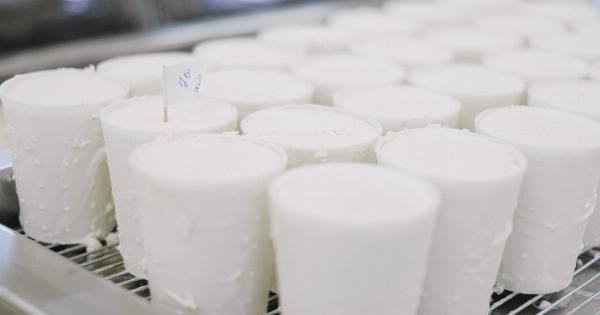As a breastfeeding mom, it’s important to have a healthy and balanced diet to ensure that you and your baby are getting the nutrients you need.
Eating a variety of nutrient-rich foods can also help boost your milk supply, provide energy, and support your overall health.
Include Plenty of Fruits and Vegetables
Fruits and vegetables are packed with vitamins, minerals, and antioxidants. Aim to include a variety of colors in your diet to ensure that you’re getting a range of nutrients. Some nutrient-dense options include:.
- Spinach and kale
- Berries, such as blueberries and strawberries
- Broccoli, cauliflower, and other cruciferous vegetables
- Carrots and sweet potatoes
- Tomatoes and bell peppers
Get Enough Protein
Protein is important for building and repairing tissues in your body, and it’s especially important for breastfeeding moms. Aim for 2-3 servings of protein per day. Good sources of protein include:.
- Chicken, turkey, and other lean meats
- Fish, such as salmon and tuna
- Eggs
- Beans and legumes, such as lentils and chickpeas
- Nuts and seeds, such as almonds and chia seeds
Don’t Forget about Healthy Fats
Healthy fats are important for your baby’s brain development and can also help boost your milk supply. Some healthy fat options include:.
- Avocado
- Nuts and seeds
- Fatty fish, such as salmon
- Olives and olive oil
- Coconut oil
Stay Hydrated
Drinking enough water is important for breastfeeding moms to help maintain milk supply and prevent dehydration. Aim for at least eight 8-ounce glasses of water per day.
You can also include other hydrating options like coconut water, herbal tea, or fruit-infused water.
Consider Your Calorie Needs
While breastfeeding, you may need to consume an extra 300-500 calories per day to ensure that you and your baby are getting the nutrients you need.
However, every woman’s caloric needs are different so it’s important to talk to your healthcare provider about what’s right for you.
Avoid Certain Foods
Some foods can potentially be harmful to your baby if consumed in large amounts. It’s important to avoid the following:.
- Alcohol
- Caffeine (in large amounts)
- Fish high in mercury, like shark and swordfish
- Foods high in added sugars and saturated fats
Consider a Multivitamin
Taking a daily multivitamin can help ensure that you’re getting all of the nutrients you need while breastfeeding. Your healthcare provider can recommend a safe option for you.
Listen to Your Body
Remember to listen to your body – eat when you’re hungry and stop when you’re full. Try to eat a variety of nutrient-dense foods to ensure that you’re getting all of the necessary vitamins and minerals.
Conclusion
Eating a healthy, balanced diet while breastfeeding is important for your overall health and milk supply. Incorporate plenty of fruits and vegetables, get enough protein and healthy fats, stay hydrated, and avoid certain foods.
Your healthcare provider can help you determine how many calories you need and recommend a safe multivitamin.































